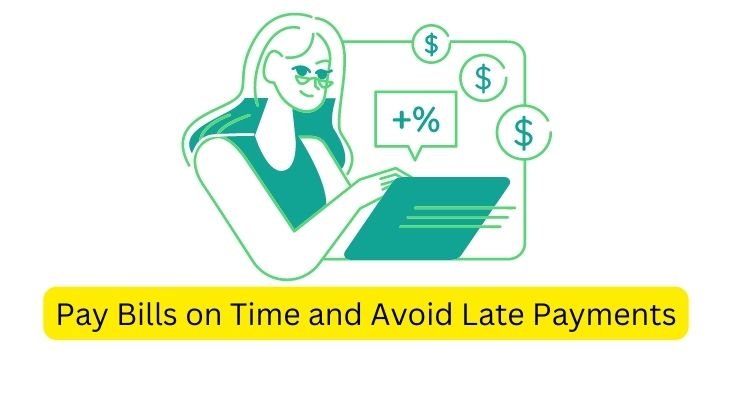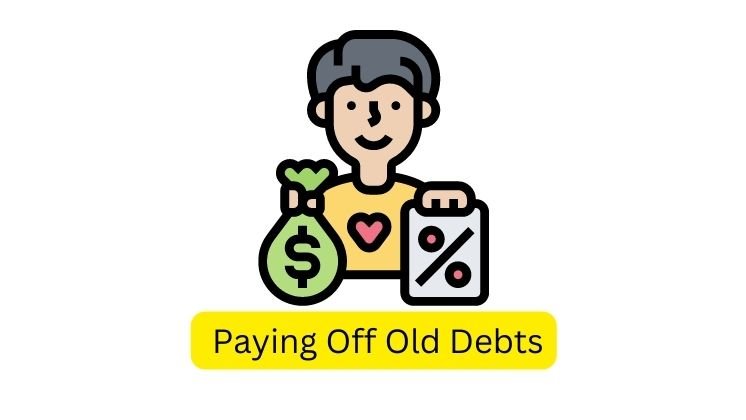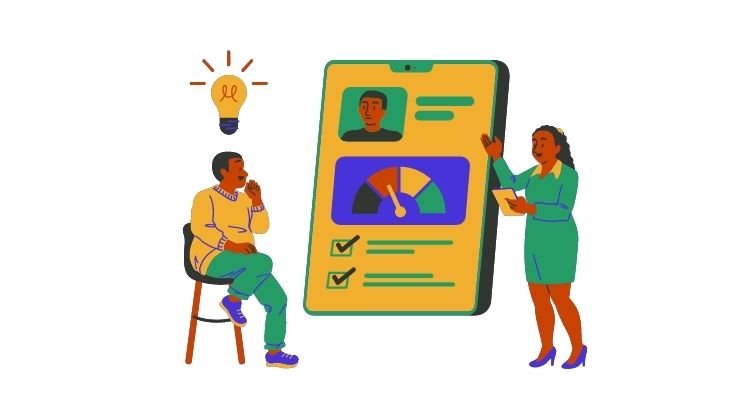Introduction
Definition of a credit score and its importance
A credit score is a numerical representation of an individual's creditworthiness. It is based on information in a person's credit report, which includes their credit history, debts, and payment patterns. Credit scores are typically used by lenders, landlords, and insurers to evaluate the risk of extending credit, renting property, or providing insurance coverage to an individual.
A high credit score indicates a good credit history and a low risk of default, while a low credit score may suggest a higher risk of default and may make it more difficult for an individual to obtain credit, loans, or insurance. As such, credit scores are an important factor in financial decision-making, as they can affect an individual's ability to obtain credit, as well as the terms and interest rates they may receive on loans or other financial products.
Overview of the different credit scoring models

There are several different credit scoring models used by lenders and other financial institutions to evaluate creditworthiness. The most widely used credit scoring model is the FICO score, developed by the Fair Isaac Corporation.
FICO scores range from 300 to 850, with higher scores indicating a lower risk of default. Other common credit scoring models include VantageScore, developed by the three major credit reporting agencies (Experian, Equifax, and TransUnion), and the BASE FICO score, which is a variation of the traditional FICO score used by some auto lenders.
In addition to these models, lenders may also use proprietary credit scoring models or a combination of different models to evaluate credit risk. It is important to note that different credit scoring models may use slightly different criteria to calculate a credit score, so it is possible for an individual to have different scores depending on which model is used.
How credit scores are calculated
Factors that impact a credit score

There are several factors that can impact an individual's credit score. One of the most important factors is payment history, which refers to whether an individual has consistently made timely payments on their debts. Late or missed payments, collections, bankruptcies, and other negative marks on an individual's credit report can significantly lower their credit score.
Credit utilization, or the amount of credit an individual uses relative to their credit limit, is also a significant factor in credit scoring. Using a large portion of available credit can lower a credit score, as it may suggest that an individual is relying heavily on credit to meet their financial obligations.
Length of credit history is another factor that can impact a credit score, as a longer credit history may demonstrate an individual's ability to manage credit over time.
The types of credit accounts an individual has, such as credit cards, mortgages, and auto loans, can also impact their credit score, as can applying for new credit too frequently, as this may suggest financial instability or a higher risk of default.
The role of credit reporting agencies

Credit reporting agencies, also known as credit bureaus, play a crucial role in the credit scoring process. These agencies collect and maintain credit information on individuals, including their payment history, credit balances, and any negative marks on their credit reports.
This information is used to calculate an individual's credit score, which is then made available to lenders and other financial institutions that request it. Credit reporting agencies also provide credit reports to individuals upon request, allowing them to review their credit information and ensure that it is accurate.
There are three major credit reporting agencies in India: Experian, Equifax, and TransUnion. These agencies may use slightly different criteria to calculate credit scores, so it is possible for an individual to have different credit scores depending on which agency's report is used.
It is important to regularly review your credit report to ensure that the information it contains is accurate and up to date, as mistakes or errors on a credit report can have a negative impact on your credit score.
Tips for improving your credit score
Pay bills on time and avoid late payments

Paying bills on time and avoiding late payments is one of the most effective ways to improve your credit score. Payment history is a major factor in credit scoring, and late or missed payments can have a significant negative impact on your credit score.
By consistently making timely payments, you can demonstrate your ability to manage credit responsibly and improve your credit score over time. It is important to note that even a single late payment can have a lasting impact on your credit score, so it is essential to stay organized and on top of your financial obligations.
One strategy for avoiding late payments is to set up automatic payments for your bills, which can help ensure that payments are made on time even if you forget or are unable to make them manually. It is also a good idea to make payments well in advance of the due date to allow for any unexpected delays or issues.
Keep credit utilization low by paying off debts and avoiding high balances on credit cards
Keeping your credit utilization low is another effective way to improve your credit score. Credit utilization is a measure of the amount of credit you are using relative to your credit limit. A high credit utilization ratio, or using a large portion of your available credit, can have a negative impact on your credit score, as it may suggest that you are relying heavily on credit to meet your financial obligations.
On the other hand, a low credit utilization ratio can help improve your credit score, as it demonstrates that you are using credit responsibly and not overextending yourself. To keep your credit utilization low, it is important to pay off debts and avoid high balances on credit cards.
This can be achieved by paying more than the minimum payment each month or by making multiple payments throughout the month to reduce your balances. It is also a good idea to avoid taking on too much new credit, as this can increase your credit utilization ratio and lower your credit score.
By keeping your credit utilization low, you can demonstrate your financial stability and improve your credit score over time.
Don't apply for too much new credit at once

Applying for too much new credit at once can have a negative impact on your credit score. Each time you apply for credit, the lender will request a copy of your credit report and may make an inquiry about your credit score.
These inquiries, also known as "hard inquiries," can lower your credit score, as they may suggest to lenders that you are seeking a large amount of new credit. To avoid this, it is important to limit the number of credit applications you make. Instead of applying for multiple credit accounts at once, consider spreading out your applications over a longer period of time.
This can help minimize the impact on your credit score and demonstrate to lenders that you are not seeking too much new credit at once.
It is also a good idea to research and compare different credit offers before applying, as applying for credit that you are unlikely to be approved for can also have a negative impact on your credit score. By being selective and strategic in your credit applications, you can improve your credit score over time.
Consider consolidating or paying off old debts

Consolidating or paying off old debts can be an effective way to improve your credit score. When you have multiple debts, it can be challenging to keep track of all of them and make timely payments. This can lead to late payments or even default, which can significantly lower your credit score.
By consolidating your debts, you can simplify your financial obligations and make it easier to manage your payments. This can be achieved by taking out a single loan to pay off multiple debts, or by transferring your credit card balances to a single card with a lower interest rate.
Paying off old debts can also improve your credit score, as it reduces your overall debt burden and demonstrates your ability to manage credit responsibly. However, it is important to be careful when consolidating or paying off debts, as taking on too much new credit or incurring additional fees can negate the benefits of consolidation or debt repayment.
By carefully evaluating your options and making a plan to pay off your debts, you can improve your credit score over time.
Monitor your credit reports for errors and disputes them if necessary

Monitoring your credit reports for errors and disputing them if necessary is an important step in improving your credit score. Credit reporting agencies collect and maintain credit information on individuals, and it is not uncommon for mistakes or errors to occur on credit reports.
These mistakes can include incorrect payment histories, outdated information, or even information belonging to someone else. If you find an error on your credit report, it is important to dispute it as soon as possible.
By doing so, you can ensure that your credit report accurately reflects your credit history and financial situation. To dispute an error on your credit report, you will need to contact the credit reporting agency and provide evidence to support your claim.
The credit reporting agency will then investigate your dispute and make any necessary corrections to your credit report. It is a good idea to regularly review your credit reports from all three major credit reporting agencies to ensure that the information they contain is accurate and up to date.
By doing so, you can catch and dispute any errors that may be negatively impacting your credit score.
The consequences of a low credit score

Difficulty obtaining loans and financing
Having a low credit score can make it difficult to obtain loans and financing, including mortgages and car loans. Lenders use credit scores to evaluate the risk of extending credit to an individual, and a low credit score may indicate a higher risk of default.
As a result, individuals with low credit scores may be denied loans or offered loans with unfavorable terms, such as higher interest rates or fees. This can make it difficult or even impossible for individuals with low credit scores to obtain the financing they need to make major purchases, such as a home or a car.
In addition to traditional loans, a low credit score can also make it more difficult to obtain financing through alternative lending sources, such as peer-to-peer lenders or online lenders.
By improving your credit score, you can increase your chances of obtaining the financing you need and potentially secure more favorable terms on loans and financing.
Higher interest rates on credit cards and loans
Having a low credit score can also result in higher interest rates on credit cards and loans. Lenders use credit scores to evaluate the risk of extending credit to an individual, and a low credit score may indicate a higher risk of default.
As a result, individuals with low credit scores may be offered credit cards and loans with higher interest rates, as lenders seek to compensate for the increased risk.
This can make it more expensive to borrow money or use credit, as higher interest rates result in higher monthly payments and overall costs. For example, an individual with a low credit score may be offered a credit card with an annual percentage rate (APR) of 20%, while an individual with a high credit score may be offered a credit card with an APR of 10%.
By improving your credit score, you can potentially qualify for lower interest rates on credit cards and loans, which can save you money over time and make it more affordable to borrow money.
Difficulty renting an apartment or getting approved for certain types of insurance
A low credit score can also make it more difficult to rent an apartment or get approved for certain types of insurance. Many landlords and property management companies use credit scores to evaluate the risk of renting to an individual, and a low credit score may be seen as a red flag.
As a result, individuals with low credit scores may have difficulty finding an apartment or may be required to pay a higher security deposit or rent in advance. In addition to rental properties, a low credit score can also affect an individual's ability to obtain certain types of insurance.
Some insurers use credit scores to evaluate the risk of providing coverage to an individual, and a low credit score may result in higher premiums or even a denial of coverage.
By improving your credit score, you can increase your chances of being approved for rental properties and insurance coverage and potentially secure more favorable terms on these products.
Conclusion
In conclusion, a good credit score is important for financial stability and success. It can affect an individual's ability to obtain credit, loans, and financing, as well as the terms and interest rates they may receive on these products.
By understanding how credit scores are calculated and what factors impact them, it is possible to take steps to improve your credit score over time. This may involve paying bills on time, keeping credit utilization low, avoiding too many new credit applications, consolidating or paying off old debts, and monitoring your credit reports for errors.
By following these strategies, you can improve your credit score and increase your financial opportunities and stability. It is important to note that improving your credit score takes time and may not happen overnight, but with careful management and the right strategies, it is possible to achieve a good credit score and secure a strong financial future.
FAQs
How are credit scores calculated?
Credit scores are calculated using the information in an individual's credit report, including their payment history, credit utilization, length of credit history, types of credit accounts, and new credit applications.
Different credit scoring models may use slightly different criteria to calculate a credit score, so it is possible for an individual to have different scores depending on which model is used.
What can I do to improve my credit score?
There are several strategies you can use to improve your credit score, including:
Paying bills on time and avoiding late payments.
Keeping credit utilization low by paying off debts and avoiding high balances on credit cards.
Avoiding applying for too much new credit at once.
Considering consolidating or paying off old debts.
Monitoring your credit reports for errors and disputing them if necessary.
How long does it take to improve my credit score?
Improving your credit score takes time and may not happen overnight. It is important to be consistent and patient in your efforts to improve your credit score, as it can take several months or even years to see significant changes. By following good credit practices and managing your finances responsibly, you can improve your credit score over time.
How is credit score calculated?
Credit scores are calculated using the information in an individual's credit report, which is a detailed record of their credit history. Credit reports are maintained by credit reporting agencies, also known as credit bureaus, and contain information on an individual's credit accounts, payment history, credit balances, and any negative marks on their credit report.
There are several factors that can impact an individual's credit score, including:
1. Payment history: Payment history is a major factor in credit scoring, and it refers to whether an individual has consistently made timely payments on their debts. Late or missed payments, collections, bankruptcies, and other negative marks on an individual's credit report can significantly lower their credit score.
2. Credit utilization: Credit utilization is the amount of credit an individual uses relative to their credit limit. A high credit utilization ratio, or using a large portion of available credit, can lower a credit score, as it may suggest that an individual is relying heavily on credit to meet their financial obligations.
3. Length of credit history: Length of credit history is another factor that can impact a credit score, as a longer credit history may demonstrate an individual's ability to manage credit over time.
4. Types of credit accounts: The types of credit accounts an individual has, such as credit cards, mortgages, and auto loans, can also impact their credit score.
5. New credit applications: Applying for new credit too frequently may suggest financial instability or a higher risk of default, which can lower a credit score.
Different credit scoring models may use slightly different criteria to calculate a credit score, so it is possible for an individual to have different scores depending on which model is used. It is also important to note that credit scores can change over time as an individual's credit history and financial situation change. By managing credit responsibly and following good credit practices, it is possible to improve a credit score over time.

Hi, I’m Durgesh Nayak, and I hold a Master’s degree in Commerce with over five years of experience in the banking sector. I am certified with JAIIB and CAIIB, which has given me a solid foundation in financial knowledge. For the past four years, I’ve been sharing my passion for finance through writing money and finance blogs.
My goal is to make complex financial topics accessible and actionable, helping you improve your personal finance, investment strategies, and overall financial planning.

